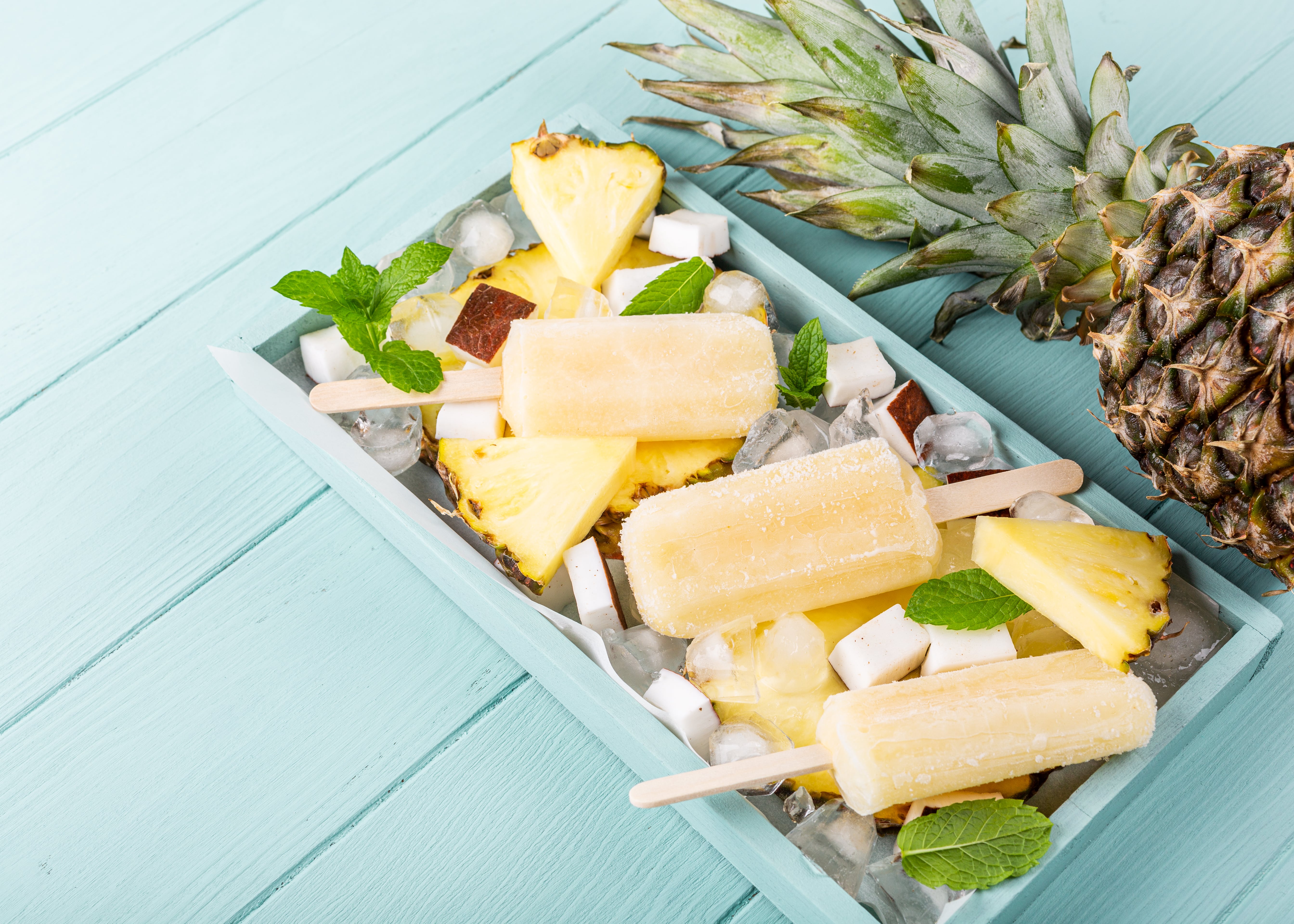Maintaining optimal blood sugar levels is important for everyone for various reasons. Keeping your blood glucose balanced can help increase your energy, prevent weight gain, and even reduce the risk of heart disease. Avoiding blood sugar spikes is particularly important for those with prediabetes or type 2 diabetes, as the risk for serious conditions like high blood pressure and cardiovascular disease increases. In fact, people with diabetes are almost twice as likely to suffer from heart disease or stroke compared to those without diabetes.1
The best way to keep your blood sugar levels in check is to be mindful of what you’re eating and follow a healthy diet. Your food choices matter, especially if you’re focused on diabetes management. In this article, we’re highlighting foods you should steer clear of and recommending some better-for-you swaps.
Remember, the best strategy is always personalized, so it’s important to work with a registered dietitian or nutritionist to customize the right meal plan for you.
{{mid-cta}}
1. Sugary Foods
.webp)
It’s widely known that foods with added sugar can have negative health implications and lead to conditions like insulin resistance and obesity. These negative effects are even more pronounced in those with diabetes. Sugary foods like cookies, cakes, baked goods, and fruit juices can soar your blood sugar, making it harder to manage glucose levels. Frequent blood sugar spikes and crashes are not only challenging for daily energy levels but can also increase insulin resistance, making it more difficult to control diabetes over time.
High-sugar diets are also associated with an increased risk of obesity, high blood pressure, and cardiovascular disease, all of which are common complications of diabetes. To make matters worse, these foods often lack fiber and other nutrients that slow glucose absorption, leading to a faster, more dramatic impact on blood sugar levels. Minimizing or avoiding foods high in sugars will help stabilize blood glucose and support long-term health.2
Instead, opt for whole fruits or foods with natural sweetness, like berries, which are high in fiber and have a lower impact on blood sugar.
2. Processed Meats
.webp)
Processed meats, like bacon, hot dogs, and deli meats, can pose significant health risks for those managing type 2 diabetes. Known for their high levels of sodium, saturated fats, and preservatives, processed meats are best avoided by people looking to maintain stable blood sugar levels and reduce their risk of diabetes-related complications. The sodium content in these foods is a concern as it can lead to high blood pressure, a common issue among people with type 2 diabetes. Furthermore, many processed meats contain preservatives like nitrates, which have been linked to an increased risk of breast cancer and prostate cancer.3
Focus on healthy protein sources, such as organic free-range chicken or turkey, wild-caught fish, or plant-based proteins like beans and lentils, to support stable blood sugar levels and heart health.
3. Alcohol
.webp)
For people with type 2 diabetes, alcohol can have an unpredictable effect on blood sugar levels. While occasional, moderate drinking may be manageable for some, alcohol can interfere with blood glucose control and overall diabetes management.
Alcohol can cause unsafe blood sugar fluctuations in those with diabetes. This is because the liver is involved in both alcohol and glucose metabolism. If the liver is busy focusing on breaking down alcohol, you may experience blood sugar swings leading to conditions like hypoglycemia (low blood sugar). Hypoglycemia can cause dizziness, confusion, and even loss of consciousness, making it dangerous for individuals managing diabetes.
Additionally, many alcoholic beverages are high in sugar and don’t offer any nutrients, which can lead to weight gain and further complications for people with type 2 diabetes.
Herbal teas like chamomile or lavender can be a nice way to unwind in the evenings. Low-sugar mocktails are also a good option.
4. Artificial Sweeteners
.webp)
Artificial sweeteners are often marketed as a sugar-free alternative for people who are focused on weight loss or managing their diabetes. However, emerging research suggests that these substitutes may have unintended effects on blood sugar control.
While artificial sweeteners do not contain sugar, studies show they may still impact blood sugar levels by altering the body’s natural response to sweetness. Consuming artificial sweeteners regularly may lead to increased cravings for sweets, making it harder to manage blood glucose and weight. These sweeteners have also been linked to changes in gut bacteria, which regulate blood sugar. An imbalance in gut bacteria can increase insulin resistance and the risk of developing diabetes.4
Try natural sweeteners like a stevia or monk fruit for a healthier alternative. You can also use fresh fruits to increase the sweetness of a dish, as these will provide fiber and added nutrients.
5. Dried Fruit
.webp)
Dried fruits can be deceiving. While they may be a good source of fiber, vitamins, and minerals, they are also very high in sugar. By removing the water from the fruit, the concentration of sugar goes way up. As a result, even a small portion of dried fruit can contain a large amount of sugar and have a high glycemic index, causing rapid spikes in blood glucose levels. For people with type 2 diabetes, these sudden increases in blood sugar can make it difficult to maintain stable glucose control, leading to energy crashes and cravings. It’s best to think of dried fruit as an indulgence or treat, not something to consume daily.
Fresh fruit is loaded with health benefits and is always a good choice. If you’re looking to mix it up, frozen fruit is great for snacking or adding to your meals.
<div class="pro-tip"><strong>Also Read: </strong><a href=10-diabetes-superfoods-nutrient-packed-choices>10 Diabetes Superfoods: Nutrient-Packed Choices</a></a>.</div>
6. Sugar-Sweetened Beverages
.webp)
Beverages can be sneaky sources of hidden sugars. Sodas, energy drinks, and even fruit juice can have 5 or more teaspoons of sugar per cup. Due to the lack of fiber, protein, and fat in these drinks, the sugar is absorbed quickly, resulting in extreme blood sugar spikes. Regular consumption of these drinks may contribute to weight gain, increased insulin resistance, and a higher risk of complications related to type 2 diabetes.
Sparkling water with fresh fruit is a great replacement for those who like the fizz of soda or energy drinks. Unsweetened tea with a squeeze of lemon can hit the spot, too!
7. Refined Carbs
.webp)
So much of the typical American diet comprises refined carbs; it’s no wonder many people are metabolically unhealthy. Refined carbohydrates like white bread, bagels, cereal, white rice, and pasta (anything made with white flour) are high in carbohydrates yet low in fiber, protein, and fat (which all help slow digestion and blunt blood sugar spikes.) Because of this, refined carbs break down quickly in the body, leading to a rapid blood sugar spike followed by a drop, which can leave people feeling fatigued and hungry. This roller-coaster effect on blood sugar can make it challenging to maintain stable glucose levels, increasing the risk of complications associated with diabetes.
Look for options that provide fiber and protein, such as chickpea or lentil pasta, low-carb bread, and high-fiber or high-protein cereals. If you’re craving something savory, veggies like zucchini are super versatile and make great zoodles.
8. Fried Foods
.webp)
Fried foods, like french fries, fried chicken, and doughnuts, are popular for their crispy texture and savory taste. However, for individuals with type 2 diabetes, these high-fat foods can pose serious health risks. These foods are typically cooked in oils high in unhealthy fats, including trans fats and saturated fats. Consumption of these fats can lead to insulin resistance, making it harder for the body to regulate blood sugar levels effectively. Additionally, fried foods are usually high in calories and low in fiber, which can contribute to weight gain and obesity.
Look for foods cooked in healthy fats that are heat-safe, like avocado oil or olive oil. Additionally, opt for versions that are roasted instead of fried (e.g., Roasted potato wedges instead of french fries), as the roasting process requires less oil. Non-starchy vegetables can be just as delicious as those high in carbs, so don’t be afraid to get creative in the kitchen!
Learn More About How to Improve Blood Sugar Health With Signos’ Expert Advice
Signos incorporates cutting-edge research and the proven power of continuous glucose monitoring to help you lose weight and reach your health goals. Not sure if Signos is right for you? Take this quiz to find out! Interested in learning more about nutrition and healthy eating habits? Check out more articles on our blog.
<div class="pro-tip"><strong>Learn More: </strong><a href=drinks-that-lower-blood-sugar>10 Drinks That Will Lower Your Blood Sugar Levels</a>.</div>
Topics discussed in this article:
References
- https://www.niddk.nih.gov/health-information/diabetes/overview/preventing-problems/heart-disease-stroke#:~:text=High%20blood%20glucose%20from%20diabetes,can%20lead%20to%20heart%20disease.&text=People%20with%20diabetes%20tend%20to,age%20than%20people%20without%20diabetes.
- https://www.sciencedirect.com/science/article/pii/S0939475323004295
- https://pmc.ncbi.nlm.nih.gov/articles/PMC9365633/
- https://diabetesjournals.org/care/article/46/9/1681/153434/Artificial-Sweeteners-and-Risk-of-Type-2-Diabetes




.svg)










.svg)
.svg)
.svg)
.svg)
.svg)
.svg)
.svg)
